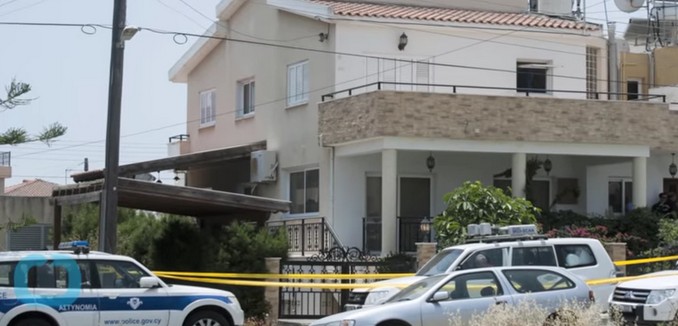Israeli Defense Minister Moshe Ya’alon stated that last Friday’s arrest of a Hezbollah terrorist in Cyprus pointed to a large-scale terror campaign by the Iranian-backed terror group against Israeli targets in Europe, Reuters reported today.
Speaking to reporters, Israeli Defence Minister Moshe Yaalon described the suspect’s apartment as “a hideout, which according to what to what they (Cypriot authorities) are saying was being used by Hezbollah’s international terrorism network”.
Further citing what Israel had been told by Cyprus, Yaalon said the ammonium nitrate was intended for manufacturing bombs.
“These were apparently meant to be ready for attacks on us,” he said, referring to Israelis or Jews in Cyprus or elsewhere in Europe. He added that the explosives might also been intended for attacks against Western targets.
Israeli security sources cited in an earlier report published in The Jerusalem Post connected the dots:
Israel has been updated on the details of the arrest and the investigation. The arrest is “further evidence of deep Iranian involvement in international terrorism.
This is an international mechanism that the Iranians activate, with the intention of building and utilizing a terrorism infrastructure in Europe,” Israeli security sources said Saturday. “Hezbollah, the contractor, is funded by Iran, and its operatives are trained by Iranian experts. In this case, like in other cases, the head is in Tehran, the orchestration is Iranian, the funding is Iranian and the one that carries it out is Hezbollah.”
Hezbollah’s involvement in this plot could force Europe to reconsider its decision to classify only Hezbollah’s “political” wing as a terrorist organization, Benjamin Weinthal, a research fellow at the Foundation for Defense of Democracies, wrote in an analysis published Saturday in the Post.
Australia, like the EU, has outlawed Hezbollah’s “military wing.” In sharp contrast to the half-designation, the US, Canada, Israel and the Netherlands have proscribed Hezbollah’s entire organization as a terrorist group. …
Should Europe sanction fully Hezbollah, there are concerns about a terrorist backlash in EU capitals. Put simply, an enormous level of fear plays a role in their calculus to maintain diplomatic relations with the Shi’ite organization.
The current arrest in Larnaca can be viewed as an Act 2 of the case of the Swedish-Lebanese citizen Hossam Taleb Yaacoub who was convicted in Cyprus in 2013 for participating in a criminal organization to murder Israelis on the island. It was the first European court conviction of a self-admitted Hezbollah member. The conviction contributed to the EU’s decision in July 2013 to ban Hezbollah’s military wing.
Yacoub, Weinthal reported, also admitted to “staking out locations Israelis would frequent and acting as a courier for [Hezbollah] inside the European Union.”
While Weinthal wrote that fear of Hezbollah may spook the EU from taking any further action against the terror organization, he speculated that the latest terror case, combined with Hezbollah’s continued support of the bloody regime of Syrian President Bashar al-Assad, could lead to “a change in Europe’s posture toward Hezbollah.”
In contrast to Europe’s reticence thus far to target Hezbollah legally, the United States Congress last month passed the Hezbollah International Financing Prevention Act of 2015. According to Tony Badran, a research fellow at the Foundation for Defense of Democracies, the bill is important on a number of levels, not the least of which because it targets Hezbollah’s patron, Iran.
While there are numerous designations that may be prompted by this new legislation, its principal purpose is to target Hezbollah’s state patron, Iran. The bill coincided with the passage of the Iran nuclear agreement review bill, which did not include any amendments addressing Iran’s sponsorship of terrorist groups like Hezbollah. H.R. 2297 therefore offers another means to target Tehran and its proxies, and to require the administration to report on Hezbollah’s primary backer – Iran.
The fact that Iran is set to receive tens of billions of dollars upon signing a possible nuclear deal next month makes the bill all the more timely. Following the announcement of the framework agreement with Iran in Lausanne last month, Hezbollah Secretary General Hassan Nasrallah boasted that with such a windfall, “a rich and strong Iran will be able to stand by its allies and friends … more than in any time in the past.”
Hezbollah’s activity in Europe is a further example of why terrorism expert Matthew Levitt of the Washington Institute for Near East Policy called Hezbollah “the tip of an Iranian imperial spear.”
[Photo: wochit News / YouTube ]




